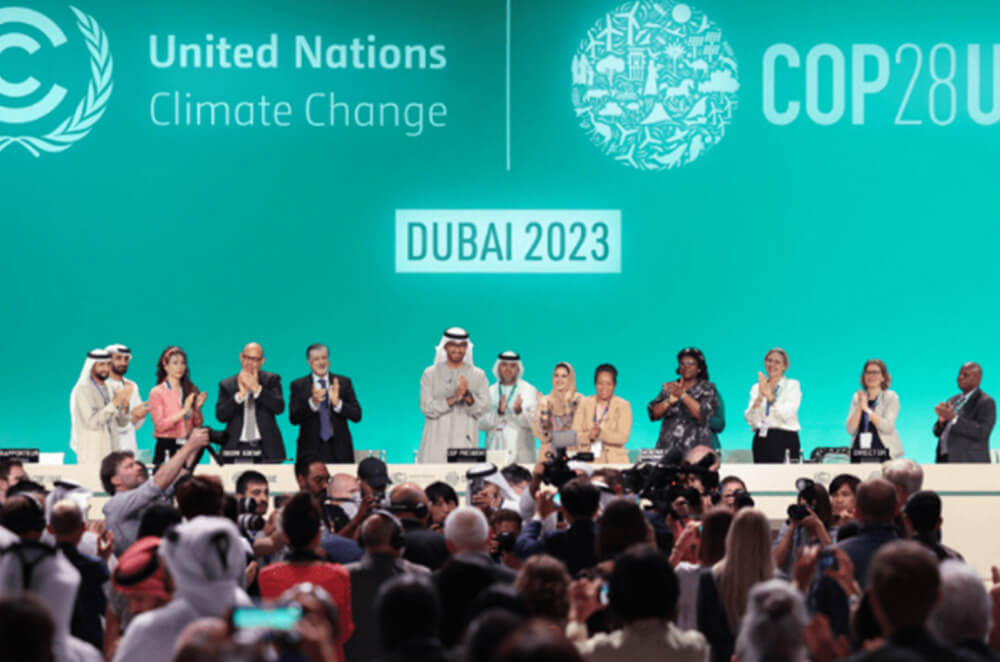Expectations for the COP28 in Dubai this month were high, and while the outcome fell short, important strides were nonetheless made. The ultimate triumph would have been for the final document to demand an immediate phaseout of fossil fuels. Instead, countries that supported this wording had to make due with a roadmap for “transitioning away from fossil fuels.”
The absence of this explicit call for a phaseout has drawn mixed reactions from leaders and activists alike and highlighted the divide between climate-vulnerable nations, activists, and larger economies.
UN Secretary-General António Guterres emphasized the necessity of ending the fossil fuel era with justice and equity, highlighting the inevitability of a phaseout, despite opposition. But why is it so important to explicitly call out fossil fuels this way? Because, as Guterres said, fossil fuels are the world’s leading contributor to climate change.
This stance underscores the growing recognition that achieving the crucial 1.5°C limit set by the Paris Agreement is intrinsically tied to eliminating fossil fuels. For years, discussion of the issue was blocked at these summits; which is why even this “incomplete” outcome represents an important step forward.
What else happened at COP28?
Although this debate focused the majority of public attention, other relevant negotiations took place, with several important decisions made during the summit.
- A commitment was made to triple renewable energy capacity and double energy efficiency by 2030. This signals a collective effort toward the transition to a world powered by sustainable energy.
- Progress was made in adaptation and finance, notably the operationalization of the Loss and Damage Fund, which had been approved last year. Despite limited financial commitments, these steps mark a critical beginning.
- Other pivotal commitments include pledges to replenish climate funds, and endorsements for declarations on climate, health, agriculture, and cooling. All of which illustrate a much called for multifaceted approach to addressing climate change.
What areas still need work?
Aside from a tougher stance on fossil fuels, other challenges persist. The Secretary-General stressed the urgent need for increased finance, especially for adaptation and loss and damage, highlighting the plight of vulnerable countries ‘drowning in debt and rising seas.’
This call for action resonated with Senegal's climate minister, Madeleine Diouf, who deemed the final agreement the "lowest possible ambition" in contrast to what science dictates as necessary.
Former U.S. Vice President Al Gore echoed this sentiment, although he acknowledged the milestone recognition of the climate crisis as a fossil fuel crisis. He emphasized that this acknowledgment is merely the starting point, calling for immediate and robust actions alongside essential financial mobilization.
COP28, while lacking a definitive phaseout mandate for fossil fuels, stands as a pivotal moment in global climate action. The urgency voiced by leaders, activists, and vulnerable nations underscores the pressing need for decisive and immediate measures.
The world now stands at a crossroads, where the actions taken in the aftermath of this conference will determine if this is the turning point in ending the fossil fuel era and averting the worst impacts of climate change.

